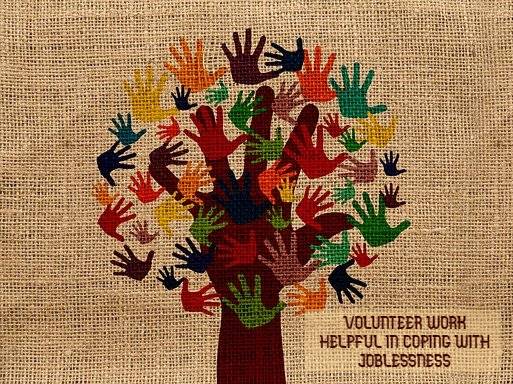Introduction
“Divorce destroys the marriage!” is a common protest among demonstrators who are passionate about the retention of traditional marriage.
While the cliché is catchy and easier to recall and to loudly declare, it is really inaccurate. The truth is this: Divorce does not destroy a marriage; it simply signals publicly that the marriage had already been destroyed a long time ago!
The same can be said about our time’s three most common disorders: depression, anxiety, and addiction. These three are considered the epidemic of this generation. The pandemic does not cause any of them.
While there is a spike of relapses during the lockdown due to the Covid 19 virus, the pandemic itself reveals that the disorders have been there for quite some time. The mandated lockdown provides a trigger for the exacerbation of symptoms.

This article is an attempt to provide helpful suggestions on how to deal with loss, particularly of a job, during the uncertainty of the pandemic period.
A good friend suggested that I write this article hoping that it might be of assistance to the readers who may be struggling with the matter.
My hope is whoever reads this will be given some practical tips on how to deal with the triggers so that neither depression, anxiety, or addiction will blossom.
May those concerned learn to navigate this scary season of life with a victorious spirit and stable heart.
Understanding grief
But first, let me talk about grief: an emotional response to a loss of a cherished object. Often, the cherished object is another person who is gone due to separation, divorce, or death. But the cherished object could be a job, a career, or an aspired promotion.
The primary consideration is the grieving had invested so much time and emotional energy in the nurture of the relationship with the cherished object.
Author Elizabeth Kubler Ross wrote a book during the 70s (On Grief and Grieving) which attempted to document grief stages that one undergoes shortly after the cherished object is lost. They are denial, anger, bargaining, depression, and acceptance.
For those interested in knowing more about this, please read the article I wrote two years ago, The Pain of Grief.
It is helpful to understand the stages so that one will become aware of the psychological dynamics that is experienced after the loss.
What I am going to focus on in this blog is to provide some tips on how to cope with the loss occasioned by job retrenchment due to the pandemic.
These tips will enhance self-awareness that developed through an understanding of the stages. They cover practical, psychological, and spiritual areas.
A. Practical.
In this category, I suggest three actions of a practical nature that will help cope with the pain derived from the loss of a job. They are: simplify lifestyle, modify the structure, and participate in volunteer work.
(1) Simplify lifestyle
Among other positive contributions of a mandated lockdown is the idea of simplifying one’s lifestyle.
It is a given that the more one’s income increases, the more expenses are incurred. Life has become more complicated as added social activities increase along with corresponding expenses.
This is all a direct result of materialism that bombards us with the manic need for acquisition. And so, “we buy things we don’t need with the money we haven’t yet earned to impress the people we don’t like!” (Robert Quillen)

There are two expense items that eat up a large bulk of one’s income: travel and entertainment.
Let us look at travel. It is a matter of the fact that travel means expense. The cost usually includes airline tickets or gasoline if traveling on land; hotels; and food from not so cheap restaurants.
These do not include expenses from the purchase of memorabilia items to showcase one’s travel experience. The need to simplify suggests that travel will be regulated to what is essential. Otherwise, it has to be totally stopped.
Entertainment is another large expense item that needs to be simplified. From watching the latest movie to visiting currently advertised amusement villages to eating out with friends and family, the expense can become enormous when done with regularity.
When a lifestyle is simplified, expense can be drastically diminished. So, the individual can focus on what is necessary.
This is a potent coping mechanism that could make the struggle inherent in job loss more bearable. When observed with discipline, it also has the potential for a more lasting effect.
(2) Modify Structure
When I use the term structure, I am not referring to the organizational hierarchy upon which the family operates. Hierarchy answers the question: Who has leadership and authority from which decision making originates?
The word structure is used here to refer to how the family functions. For example: How often does the family go to the market and grocery store to purchase the house’s needed items?
Modifying this could mean listing all the necessary items before going so that impulse trips could be eliminated.
Another practical example would be regarding the need to expect everyone in the family to participate in the tasks of home life.
How is cooperation in fulfilling the tasks at home important?
Well, it will also increase the level of understanding of each family member about the importance of having a conjoint family life. This will make life easier for everyone, instead of using the downtime playing with computer games and endless internet browsing.
One more item that could be included in structure modification is for all members of the family to spend quality bonding time together while enjoying a common activity.
It has been a malady of our time to observe families becoming so fragmented that there is no more time for connection among members.
Perhaps, this is the disguised blessing of the pandemic: family members are forced to relate. It is an act of wisdom to use this time to increase the level of everyone’s connectedness.
This will eventually help diminish expenses resulting from each family member having to purchase entertainment gadgets only for themselves.
(3) Participate in volunteer work
How is participation in volunteer work helpful in coping with joblessness?
It is not complicated. The person who has lost a job will have something productive to do. A contributor to loneliness resulting from workplace retrenchment is interactional isolation.

When unaddressed, isolation could lead to a depressive episode. Having something to do through voluntary work will offset the development of loneliness.
An old adage suggests this: Whenever you are tempted to complain about how bad things have become, think of the lesser fortunate than you are!
In doing voluntary work, one is exposed to those in dire need with desperate situations. Exposure to this desperation could help one learn to appreciate what he or she has despite job loss.
An additional advantage of participation in volunteer work is the increase of one’s social network. Who knows, these fresh relationships can offer some encouragement and potential leads to another work in the future. After all, God can work in mysterious and surprising ways.
B. Psychological
This category focuses on what is going on in the mind that can potentially impact one’s emotion. There are three principles involved here: acceptance, vulnerability, and support system.
(1) Acceptance
What should be accepted is the reality of the loss. The earlier one does this, the better for the health of the mind.
This means to resist the lure of bargaining as indicated in the stages of grief.
Bargaining occurs when the mind continues to think along the line of “If only I didn’t lose my job.” This is usually followed by a promise similar to this, “I’ll become a better spouse.”
And the promise to be better is endless. Of course, when the situation stabilizes, the promise is often forgotten.
This thought process continues the mode of denial, which is unhealthy for healing.

Yes, it is indeed painful to accept the loss, but this is similar to the pain experienced when one goes to the dentist. In due time, the pain will diminish as the self recovers.
Think of the loss as a cut in the flesh. After a while, as the body reacts and produces antibodies, pus emerges. The way to fully heal is to prick the pus and have it removed.
Acceptance is similar to this phenomenon: it pricks quite painfully the wound for the emotional pus to be released.
(2) Vulnerability
To be vulnerable and open up to someone trusted is a strong coping device against loss. What often delays the healing process is the tendency of the self to bear and grin.
It projects an image that one is in control of the situation. As ineffective as it is, this tendency seems to be socio-culturally reinforced.
The message in song that we are often bombarded says, “Smile though your heart is aching; Smile even though it’s breaking… Light up your face with gladness, Hide every trace of sadness. Although a tear may be ever so near, That’s the time you must keep on trying. Smile, what’s the use of crying….” (Music by Charlie Chaplin, Lyrics by John Turner and Geoffrey Parsons; song popularized by Nat King Cole, 1954).
The thought of smiling while aching is compounded by an equally powerful social reinforcer that suggests it is a sign of weakness to seek help.
“There are potential lessons that can be derived from a painful situation. All these lessons can bring growth. The challenge is how to tap these lessons.”
DR. VAL GONZALES
One of my previous students from China informed the class I was teaching of a common Chinese saying, which goes like this “Men can shed blood, but they cannot shed tears!”
Against this tendency to hide one’s pain with the pretense of being in control, I suggest in the strongest possible words that one should become vulnerable especially at times of loss.
This means opening up to someone trusted and sharing one’s relenting pain, unfulfilled expectations, and shattered dreams. The experience is a form of release which makes the heart more tender and one’s internal systems stable.
Medical science will tell of the complications derived from internal tension coming from a pattern of withholding appropriate expression of emotion and living a life of pretense.
(3) Support system
A powerful coping mechanism during times of loss is participating in a support group of like-minded people.

The open sharing of one’s struggles with those who will offer non-judgmental acceptance and unconditional positive regard is most therapeutic.
A support group offers a sense of belonging. This is an antidote to being alone which is a potential trigger to loneliness.
The group members’ regular attendance conveys that one does not have to undergo the struggle alone. Herein are those whose words and presence become a source of invaluable support.
Being a part of a support system also suggests accountability. It is rather easy to allow one’s mind to wander whenever one is by him/herself.
Faithful attendance in a support group could benefit from a check and balance offered by the group. While empathy is a trademark of a supportive group, loving confrontation offers equal significance.
Even if one is not learning much at a given meeting, the thought that others are learning from him/her adds motivation to remain accountable.
C. Spiritual
Let me share four helpful principles in this category. They can be gleaned from innate wisdom for why losses are allowed to occur. They are the following: temporary nature, growth lessons, giftedness inventory, and faith community.
(1) Temporary nature
A job loss by its very nature is not permanent. This does not mean that one will have the same job again for it might not occur.
However, this means that one day another job will come if there is a willingness to make adjustments.
The same can be said about the consequences resulting from a loss. It is not permanent in nature.
So, from the spiritual vantage point, this by itself evokes some hope for tomorrow. The problem often that intensifies pain comes from the thought that this suffering is forever.
As life continues eventually things will change.
A powerful metaphor from which we can derive a reminder about the nature of life is the seasons’ phenomenon.
As the end of autumn approaches the cold nippy winter breeze could make one miserable. But give it time and soon spring comes forth and the frolic of summer ensues. Such is life!
What you and I go through, which could bring pain, shall eventually pass.
The key is to persistently believe that the warmth of the sun will again be experienced after the dark clouds. But we have to befriend with the virtue of waiting.
(2) Growth lessons
There is a deeper purpose for why things are allowed to happen. In God’s economy, nothing goes to waste.
There are potential lessons that can be derived from a painful situation. All these lessons can bring growth. The challenge is how to tap these lessons.
We have to ask a series of profound and related questions, the answer to which could emerge in the context of quietness. Here are the questions:
- What is the Lord trying to convey to me about me during this uncertain period of my life?
- What is the Lord trying to convey to me about Him for allowing me to partake in this rather painful experience?
- What is the Lord trying to convey to me about my relationship with Him and with others as to why I’m undergoing this episode in my life?
- What virtue do I need to develop from these trials?
The time of solitude that focuses on spiritual disciplines such as prayer, meditation upon God’s word, and reflection upon personal history could reveal powerful answers to the questions.
Eventually, these answers could provide much-needed wisdom to navigate life on life’s terms. Only when the questions are answered can one grow victoriously from the pain of loss.
(3) Giftedness inventory
The time of loss can be utilized to do a spiritual giftedness inventory. This is a period of reevaluation, even as one looks inward.
A spiritual gift is a divinely endowed ability or strength to do something important.
Examples of spiritual gifts are teaching, counseling, singing or playing an instrument, administration, giving, and craftsmanship.
There are three important principles governing spiritual gifts: discovery, training, and practice.
- Discovery is finding out the presence of the gift.
- Training is providing instruction towards the development of the gift.
- Practice is the actual exercise of the spiritual gifts for the edification of others.
Ideally, young persons should discover their spiritual gift first so that the subsequent training provided for its development can prepare them for a professional career consistent with the gift.
However, it is a sad and common phenomenon that many adults pursue a career that has nothing to do with their spiritual gifts. The only motivation for the career choice is more money. No wonder burnout and frustration are abundant in the workplace.
Re-evaluating one’s spiritual gift is an integral element of discovery.
As mentioned earlier, the period of job loss can be a significant time spent in discovering one’s spiritual gift. Perhaps this could be the beginning of a personal renaissance that beacons a brighter future ahead as one reflects upon a potential career that is more in alignment with one’s giftedness.
How do you know your gift? is a basic question to ask.
If you can answer these questions quite clearly, you will have a pretty good idea about your spiritual gift:
What do I like to do? What am I good at doing? Are others encouraged by what I do when I do it? What does the Word of God say to me about what He wants me to do? Is there a need in the community for what I am doing?
To illustrate, if you say you are gifted in music, then you like and enjoy music, people are blessed when you do your music, and you are assured that music is needed to edify others. If others are discouraged whenever you do your music, it is probably an indicator that this is not your gift!
(4) Faith community
While strongly related to the previous coping mechanism provided by a supportive group, this item suggests a strong motivation to nurture one’s childlike faith.
Belonging to a community of faith helps strengthen our inner resolved to persevere in the midst of various trials.
Getting involved in the regular activities of the community can contribute to the development of this inner strength. Listening to an anointed message can bring encouragement and conviction.
Joining in the singing of inspiring music can uplift the spirit. Participating in the celebration of life’s developmental milestones can offer solid validation of one’s significance.
Practicing one’s spiritual giftedness in the body’s life can bring edification to others while enhancing one’s belief that one can truly make a difference.
And many can resonate with the experience of aligning one’s life with that of another so that both can be mutually encouraged. While there is always someone from whom we can learn; there is also somebody who can learn from us.
The context often is the constant meeting together for prayer, meal fellowship, and joint reflection about important life lessons gleaned from God’s word and our experiences.
Being a part of a faith community solidifies the nurture of relationships: the very core of our human existence. Human life is meaningless without relationships.
Each of us comes about due to a relationship; we navigate life through its merit or lack, and we will face death by its riches or poverty.
And there is no other context where relationships can be started and nurtured than within the community of faith!
Conclusion
The pandemic is an unexpected phenomenon in our life! To many, it has created havoc by breaking life’s normal flow.
It has also triggered the spiking of common mental disorders like depression, addiction, and anxiety.
Among other things, the pandemic has caused a lot of workplace retrenchment, so that several are now facing the major loss of a familiar livelihood.
I have shared some helpful suggestions on how to cope during these uncertain times, particularly for those who are grieving over their job loss.
They are practical, psychological, and spiritual in nature.
I trust that what I have suggested here will be of assistance to those who have been looking for some handle on how to navigate life during this trying period.
May this help you to go through this difficult period with inner strength and wisdom. Shalom, everyone!


Thank you Sir Val. The message you shared worth reading & pondering. It’s an encouragement that gives hope to many that drawn in fear & helplessness. The pandemic add more anxiety in the uncertainty of life to lots of people.
I thank God’s daily grace , peace & inner joy that fills my heart learning to see things beyond reality knowing God still in control. Well, will share it to friends
Thanks for your input.
I have learned alot and understand it more clearly
I’m glad to know!